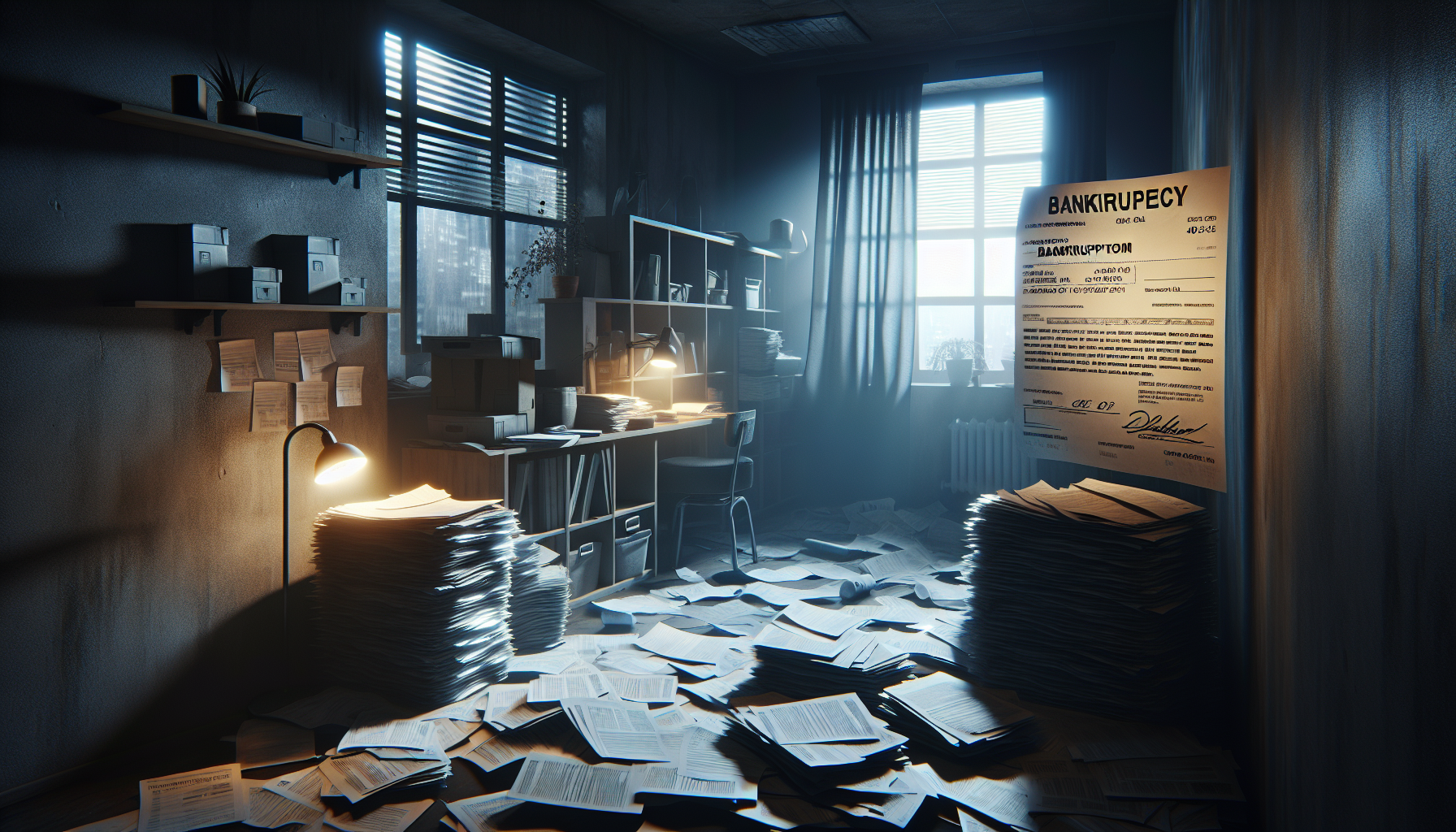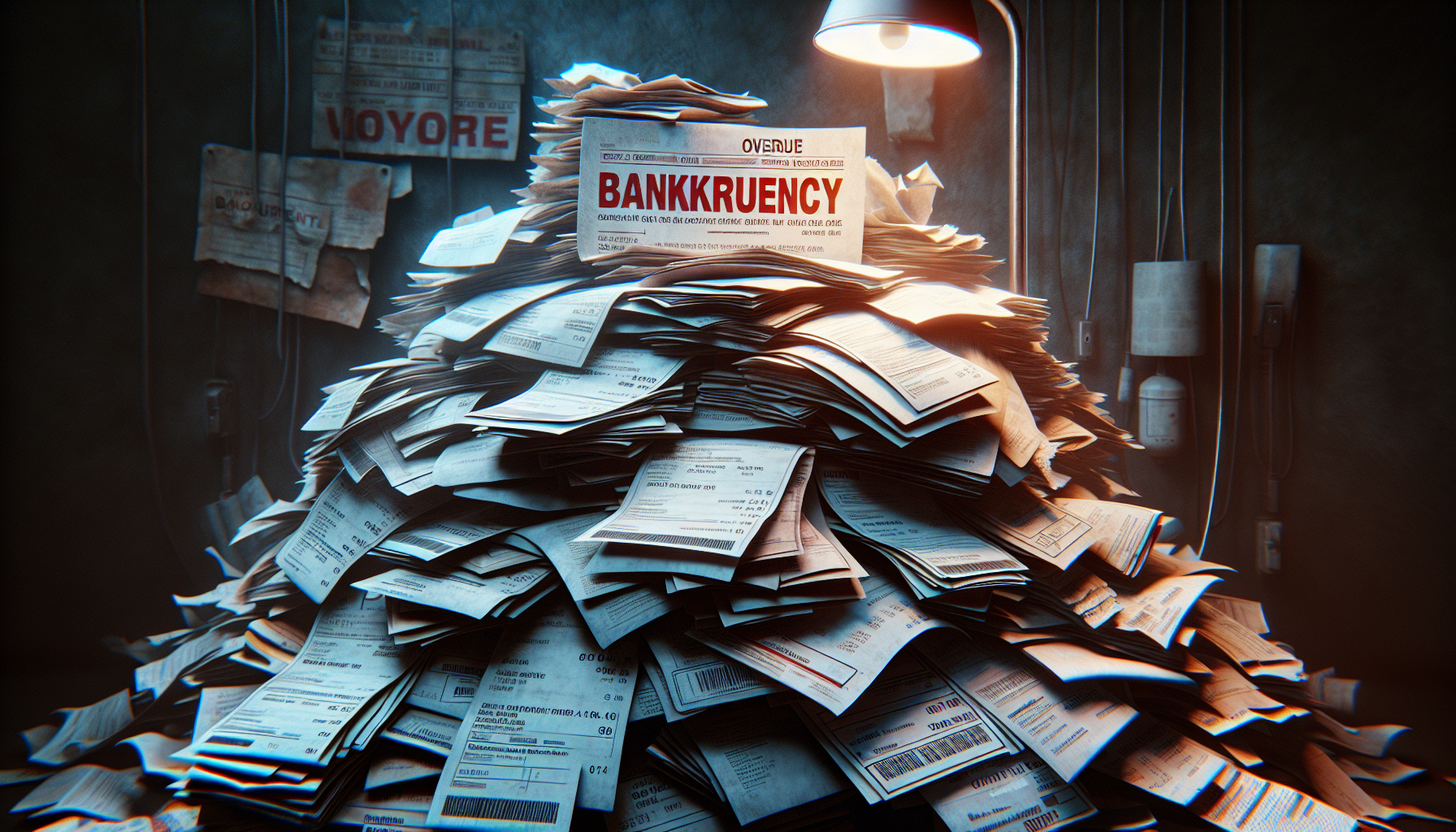
When struggling with financial insolvency, management of financial resources may resemble an endless, uphill battle. Especially when facing the intersection of bankruptcy and necessary utility costs.
Overdue gas bills and electricity bill arrears can accumulate, further complicating the situation.
This often leads to significant disruption in the provision of these vital public services.
Essential to navigate these challenges is debt relief, particularly for mandatory service expenses. Given the complexities of this landscape, there are fortunately processes available to provide assistance.
It becomes crucial to dissect and effectively control utility expenses amidst these periods of economic difficulty, while recognizing each individual’s circumstances as unique.
When dealing with financial insolvency, the effective implementation of strategies becomes exceedingly crucial. It’s imperative to manage overdue gas bills and other utility arrears effectively to avoid financial insolvency, potentially leading to a bankrupt status, and seeking debt relief could be a viable solution.
Understanding Debt Relief and Utility Bills
The process of managing personal finances often includes obligations like utility bills. Understanding how Chapter 7 and Chapter 13 bankruptcy laws can offer relief when one encounters financial difficulty to meet these obligations is crucial.
Struggling with such bills may lead to service disconnections and, in worst-case scenarios, financial ruin.
Issues with utility payments can be an early sign of substantial financial problems.
Understanding how legal provisions, particularly under Chapter 7 and 13, can provide relief is vital. These provisions significantly impact utilities, making it essential to comprehend the implications and steps required to protect these critical services.
In cases of insolvency and utilities falling due, there are certain strategies individuals can use to navigate this challenging situation. Differentiating unpaid water charges between short-term and long-term plans, for instance, can lead to more effective payment management. The results will depend on the specifics of the financial implications of each individual chapter insolvency, unpaid water charges, and potential financial ruin due to outstanding utilities.

Tackling Overdue Gas Bills During Financial Insolvency
When facing financial insolvency – a dire scenario where an individual or business cannot fulfill their financial commitments – an individual’s ‘Insolvent estate’ often wrestles with soaring debt. Among these debts, overdue gas bills emerge as a common yet significant strain, causing substantial financial distress.
It’s worth noting, within the landscape of tackling financial adversity, that there are various financial protection laws available.
In-depth understanding and application of these laws can be instrumental in judicious management of utilities, particularly for overdue gas bills.
Achieving ‘Debt discharge’ can become a realistic goal even amidst insolvency.
Gas providers, like other utility service operators, play a crucial role in a customer’s journey towards financial recovery.
Those grappling with insolvency can find solace in engaging with these providers. They often possess structured procedures designed for ‘Liquidation’ or ‘Restructuring debts’ in order to manage financial distress, solve an insolvent estate issue, and ultimately aim for debt discharge.
Financial Insolvency and Overdue Gas Bills
- Financial insolvency is a serious situation where an individual or business cannot meet their financial obligations, often due to high levels of debt, such as overdue gas bills.
- There are various financial protection laws available to help individuals and businesses manage their utility bills and other debts, potentially leading to ‘Debt discharge’ even in cases of insolvency.
- Gas providers, along with other utility service operators, have structured procedures in place for ‘Liquidation’ or ‘Restructuring debts’, which can help manage financial distress and work towards resolving insolvency issues.
- Engaging with gas providers and understanding their debt management procedures can provide some relief for those grappling with insolvency and be a crucial part of their journey towards financial recovery.
Electricity Bill Arrears When Bankrupt Status Steps In
When a delinquent utility account, such as your electricity bill, becomes a concern due to bankruptcy, it’s essential to understand the process. This drastic change, indeed, impacts unsettled bills, providing some shield against utility service providers pressing for settlement.
The implementation of an automatic stay during bankruptcy brings a pause to creditor meetings and instant proceedings.
This action notably safeguards against service disconnections for a minimum of 20 days.
It is highly beneficial to investigate options related to debt adjustment. These may range from flexible in-house payment schemes to potential government assistance.
By addressing the means test effectively, you could qualify for help. It’s crucial to remember the overarching objective is finding a manageable debt solution to prevent defaulting on utility payments.
Certainly, the process of bankruptcy is layered and complex, but strategic management can help simplify it. By taking proactive steps such as reducing recourse to delinquent utility accounts, scheduling creditor meetings, applying the means test, making debt adjustments, and preventing defaulting on utility payments, financial stability can be regained.
Chapter vs Chapter Unpaid Water Charges Implications
The consequences of unpaid water charges in the context of Chapter 7 and Chapter 13 bankruptcy filings show significant distinctions. In Chapter 7, commonly referred to as personal insolvency, unpaid utility bills, such as water charges, typically classify as unsecured debt.
These can be discharged via credit counseling, offering a much-needed breather to debtors.
This relief could potentially result in the discontinuation of services.
On the other hand, Chapter 13 employs a debt repayment plan. This allows the debtor to progressively clear their utility arrears, such as water charges, ensuring the continuation of vital services.
This debt consolidation strategy secures the necessary water supply for debtors during their financial recovery phase.
While mortgage arrears can be addressed in both methods, the implications of each chapter’s handling of unpaid water charges can differ widely. It’s critical to seek credit counseling, explore debt consolidation options, and maintain a debt repayment plan to avoid personal insolvency, especially if you are facing mortgage arrears.
Key Facts About Unpaid Water Charges in Bankruptcy Filings
- In Chapter 7 bankruptcy, unpaid utility bills like water charges are usually classified as unsecured debt which can be discharged through credit counseling.
- Discharging debt in Chapter 7 could potentially lead to the discontinuation of services, including water supply.
- Chapter 13 bankruptcy involves a debt repayment plan that allows debtors to gradually clear their utility arrears, thus ensuring the continuation of essential services.
- While both Chapter 7 and Chapter 13 address mortgage arrears, their handling of unpaid water charges can vary significantly.
Financial Ruin The Impact on Utility Services
Financial ruin poses a severe threat that has the potential to disrupt lives significantly. Wage garnishment, a consequence of financial ruin, can seriously compromise one’s ability to meet basic needs.
The threat of repossession, another daunting repercussion, can heighten the distress of an already troubling situation.
The process can have a lasting credit score impact.
Resultantly, access to public utilities, indispensable for survival, is jeopardized. Critical services such as water, electricity, and gas can become unaffordable, creating an unimaginable domino effect on everyday life.
The anxiety of service termination looms large, aggravating the emotional and financial strain.
Further, the fallout of financial ruin extends to official protocols as well.
Bankruptcy, although offering some degree of protection, complicates matters. Wage garnishment, repossession threat, and credit score impact further complicate this issue, affecting utility payments and burdening individuals with the stress of managing overdue bills, while public utilities and debt settlement options offer potential, yet often challenging, solutions.
Insolvency and Utilities A Guide to Debt Discharge
In today’s fast-paced economy, energy bill defaults pose a risk of financial distress. These defaults are becoming increasingly common and are often related to unpaid heating costs.
Many individuals find themselves managing these costs, which is often a difficult task.
This financial stress can often lead to insolvency, a state in which an individual’s liabilities surpass their assets.
Utility expenses, particularly unpaid heating costs, play a significant role in financial distress. Numerous factors contribute to the accumulation of such debts: inadequate budgeting and a sudden decrease in income are common culprits.
These complications often escalate, driving individuals to seek legal advice on insolvency.
For many, declaring bankruptcy is an option that may offer some relief.
Although it is a severe measure, bankruptcy can impact your responsibility towards utility bills.
The process of bankruptcy carries both legal protection and obligations. Therefore, comprehending these aspects thoroughly is crucial to combat energy bill defaults, navigate debt collection, provide legal advice on insolvency, manage unpaid heating costs, and strive for financial recovery.
Energy Bill Defaults and Financial Distress
- Energy bill defaults, especially unpaid heating costs, are becoming increasingly common in today’s fast-paced economy.
- Financial distress due to utility expenses can often lead to insolvency, where an individual’s liabilities surpass their assets.
- Factors contributing to such debts include inadequate budgeting and a sudden decrease in income.
- Bankruptcy, though a severe measure, can impact an individual’s responsibility towards utility bills and provide some relief.
Liquidation and Restructuring Debts How to Manage Utility Bills
Filing for bankruptcy, primarily due to credit card debt, can considerably influence your utility services. Depending on the bankruptcy type—whether it’s liquidation (Chapter 7) or debt restructuring (Chapter 13)—the impact can vary significantly.
An automatic stay is a legal intervention which restrains creditors from gathering debts briefly.
It offers a reprieve and aids in foreclosure prevention, but if debts continue to pile up, utility disconnection may be an adverse consequence.
Navigating financial distress, however, need not be a dead-end. There are several strategies available to efficiently manage your utility bills.
Prioritizing payments, setting up steady payment schemes, and sustaining open communication lines with providers are proactive steps to prevent utility disconnection.
In reevaluating your financial approach, debt forgiveness should be an essential part of your discussions with utility companies. A number of companies have assistance programs that offer credit card debt forgiveness, automatic stay options during foreclosure prevention, utility disconnection solutions, and other forms of debt forgiveness.
Financial Distress and its Effects on Your Utility Accounts
Managing utility bills amidst a financial crunch can be a challenging endeavor. Such scenarios often cast individuals into a state of financial distress where they find themselves unable to meet fiscal obligations.
One of the major effects of this distress is struggling to maintain regular payments of utility bills, particularly energy expenses.
With late payment fees, energy debt assistance becomes a pressing necessity.
This monetary struggle would then force many to defer the payment of utility bills. The consequence is service disruptions and escalating economic concerns.
This situation can lead to becoming financially insolvent, a further blow to an already troubling financial scenario.
Factors like these not only lead to financial turmoil, but also strain relationships with utility providers.
In such circumstances, it’s not unusual for people to become financially insolvent.
The distress this causes in maintaining the basic utilities can be overwhelming.
There is a glimmer of hope. Various legal protections are available for those dealing with energy debt assistance, financial insolvency, credit restoration and debt negotiation, including protections against excessive late payment fees.

Get a Free Bankruptcy Case Evaluation